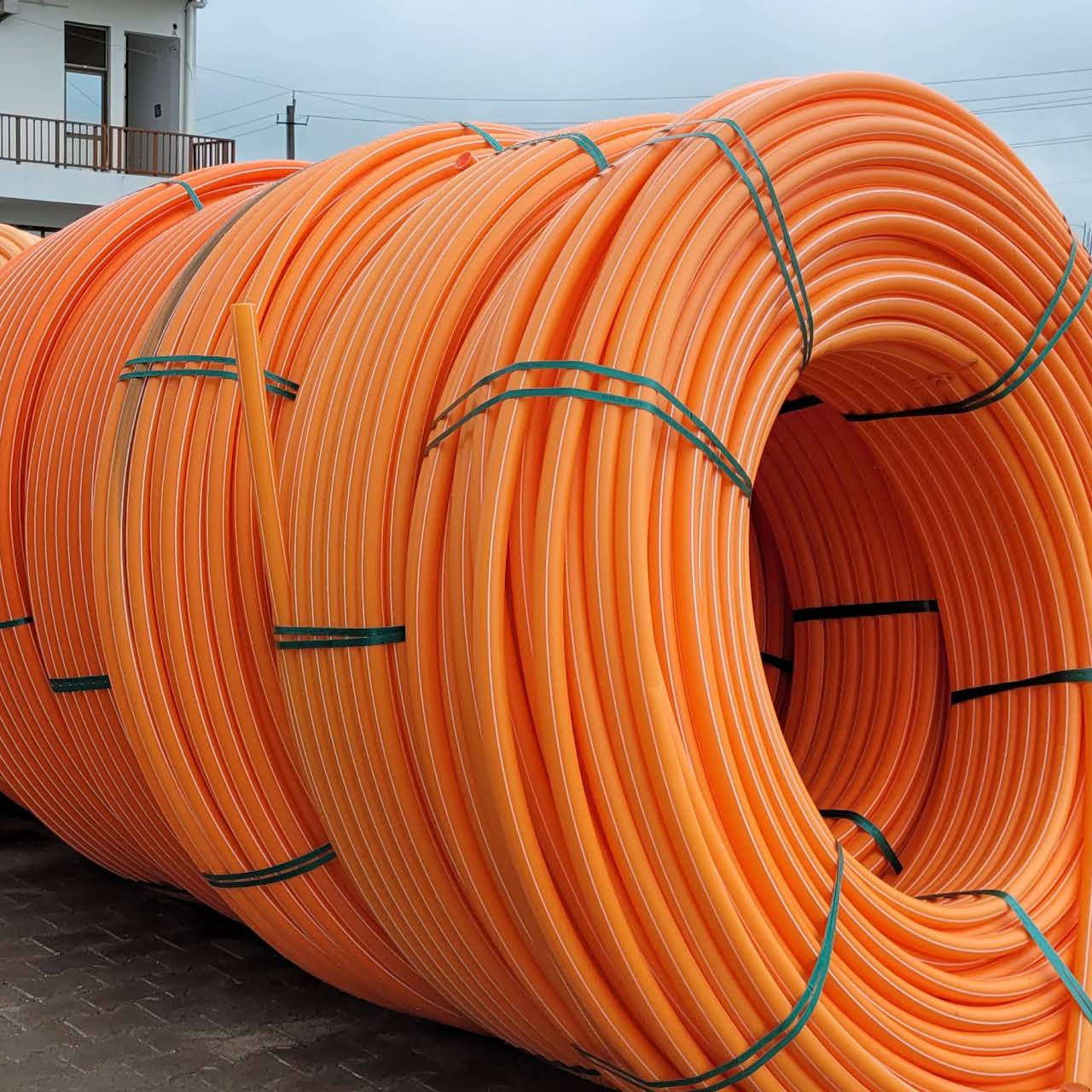Understanding the Trick Conveniences of HDPE Pipeline for Water and Wastewater Monitoring
The use of HDPE pipe in water and wastewater management provides various advantages that merit consideration. Its remarkable toughness and lengthy lifespan make it a recommended selection for several tasks. In addition, the product's resistance to deterioration and chemical damage improves its dependability in various environments. Nonetheless, the advantages extend beyond just longevity and resistance. Discovering its cost-effectiveness and ecological impact exposes a lot more compelling factors for its prevalent adoption in contemporary framework
Outstanding Durability and Durability

HDPE pipe sticks out for its exceptional toughness and long life, making it a recommended choice in water monitoring systems. Created from high-density polyethylene, these pipes can endure substantial stress and stress and anxiety, making sure trusted performance over time. Their durable nature permits them to sustain severe ecological problems, consisting of temperature level variations and dirt activities, which can cause other materials to stop working.
The life-span of HDPE pipes usually exceeds 50 years, offering an affordable option for districts and sectors alike. In addition, the material's light-weight homes simplify setup, minimizing labor prices and timeframes. This sturdiness reduces the requirement for regular repair services or replacements, better improving its financial appeal.
In water monitoring applications, the reliability of HDPE pipelines suggests less interruptions and enhanced solution connection, making them important to lasting facilities growth. The combination of resilience and long life solidifies HDPE's function as a cornerstone in efficient water monitoring services.

Resistance to Deterioration and Chemical Damage
While lots of products catch rust and chemical damages over time, HDPE pipelines show amazing resistance, making them suitable for numerous water management applications. This durability comes from the molecular framework of high-density polyethylene, which is naturally non-reactive and does not wear away like metals or deteriorate from exposure to extreme chemicals. As an outcome, HDPE is very effective in environments with aggressive compounds, such as wastewater systems that might have acids, bases, and natural solvents.
Furthermore, HDPE pipelines can hold up against ecological variables such as dirt level of acidity and saline problems, additionally improving their viability for diverse applications (custom hdpe pipe manufacturing Midland TX). Their capability to maintain structural honesty with time minimizes the danger of leaks and failures, which is critical in guaranteeing the safety and reliability of water circulation and wastewater management systems. The resistance to rust and chemical damages significantly contributes to the total performance and long life of HDPE piping options.
Cost-Effectiveness and Financial Advantages
When taking into consideration the economic ramifications of water administration systems, the cost-effectiveness of HDPE pipelines comes to be noticeable. These pipes use reduced setup and maintenance prices compared to typical materials like steel or concrete. Their lightweight nature streamlines transportation and installment, leading to lowered labor costs. In addition, HDPE pipes exhibit a lengthy lifespan, usually surpassing 50 years, which translates to less substitutes and long-lasting savings.
The resistance of HDPE to deterioration and chemical damages reduces the requirement for pricey fixings and replacements. The pipes likewise sustain reliable water flow, decreasing power prices linked with pumping systems. By reducing leaks and water loss, HDPE pipelines add to significant economic benefits for communities and industries alike. Overall, the initial investment in HDPE piping can generate substantial financial returns over the life expectancy of the water monitoring system, making it a prudent option for lasting facilities growth.
Ecological Sustainability and Reduced Impact

Convenience and Adaptability in Installment
Due to their distinct residential or commercial properties, HDPE pipes offer remarkable adaptability and versatility in installation, making them ideal for a vast array of applications. Their light-weight nature enables for simpler handling and transportation, reducing labor expenses and installation time. HDPE pipes can be bent and shaped to fit different surfaces and project demands, which is particularly helpful in testing environments.
Furthermore, their resistance to deterioration and chemical damages allows for setup in varied setups without the need for specialized protective layers. The ability to fuse joints produces a constant, leak-free system, boosting the total integrity and integrity of the installment. HDPE's flexibility likewise suits ground movement, decreasing the danger of damages in locations prone to moving dirt. Overall, these attributes make HDPE pipelines not just functional but likewise a recommended selection for water and wastewater management systems.
Frequently Asked Concerns
Exactly How Does HDPE Pipe Contrast to PVC in Water Monitoring Applications?
HDPE pipe provides remarkable adaptability, resistance to deterioration, and resilience compared to PVC. Its lighter weight helps with simpler installation, while its long lifespan minimizes substitute expenses, making HDPE a favored option in water administration applications.
What Is the Life Expectancy of HDPE Water Lines Under Typical Conditions?
Under regular problems, HDPE pipelines can have a life-span ranging from 50 to 100 years. Their sturdiness and resistance to corrosion contribute to their lasting performance in various applications, making them a dependable choice for infrastructure.
Are HDPE Piping Recyclable After Their Service Life?
Yes, HDPE pipes are recyclable after their life span. Pipe Supplier American Plastics Midland. They can be processed and repurposed right into new items, considerably decreasing ecological impact and advertising sustainability within the market, making them an environment-friendly choice for piping solutions
What Is the Installation Process for HDPE Pipes?
The installment procedure for HDPE pipes entails website preparation, trenching, pipeline combination or mechanical joining, backfilling, and pressure screening. Appropriate techniques guarantee a durable and reliable system for moving water and wastewater effectively.
Can HDPE Pipeline Be Used for Both Safe And Clean and Non-Potable Water Solutions?
Yes, HDPE pipelines can be made use of for both drinkable and non-potable water systems. Their versatility, resilience, and resistance to deterioration make them appropriate for numerous applications, making sure safe and effective transport of water in various contexts.